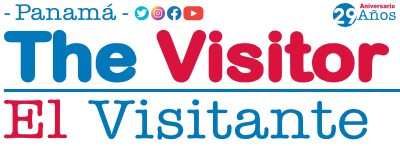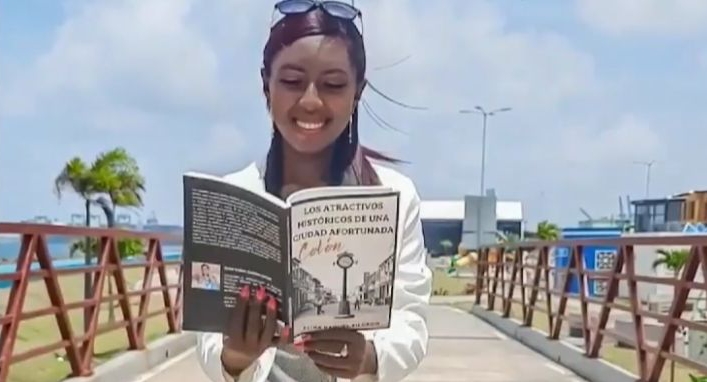Colon has such a vast and diverse history that if promoted, a new reality would emerge for this province that has been waiting for decades better days. However, the new generations of Colonenses are growing up with a deep awareness of the importance of the roots and where it can lead them if it is carried out well. This is the case of Elida Raquel Silgado Lozano, a young woman from Colon who was born in the town of María Chiquita and grew up in the midst of beautiful beaches, struggles, family sacrifices and perseverance to achieve her dreams. Although many events in Elida’s childhood were not so happy, all the tests of life made her the person she is today: a faithful believer that dreams and meritorious work allow life to offer surprises that exceeds our expectations. A sample are the two books about the history of Colon and its legacy: “Coloncito” and “The Historical Attractions of a Fortunate City, Colon.” This entrepreneur who want to high school at the Benigno Jimenez Garay Institute and graduated with honors with the Sigma Lambda degree at the University of Panama in the Tourism Business Administration career tells us exclusively about her story, her motivations for writing about her province and the importance of history in our national development.
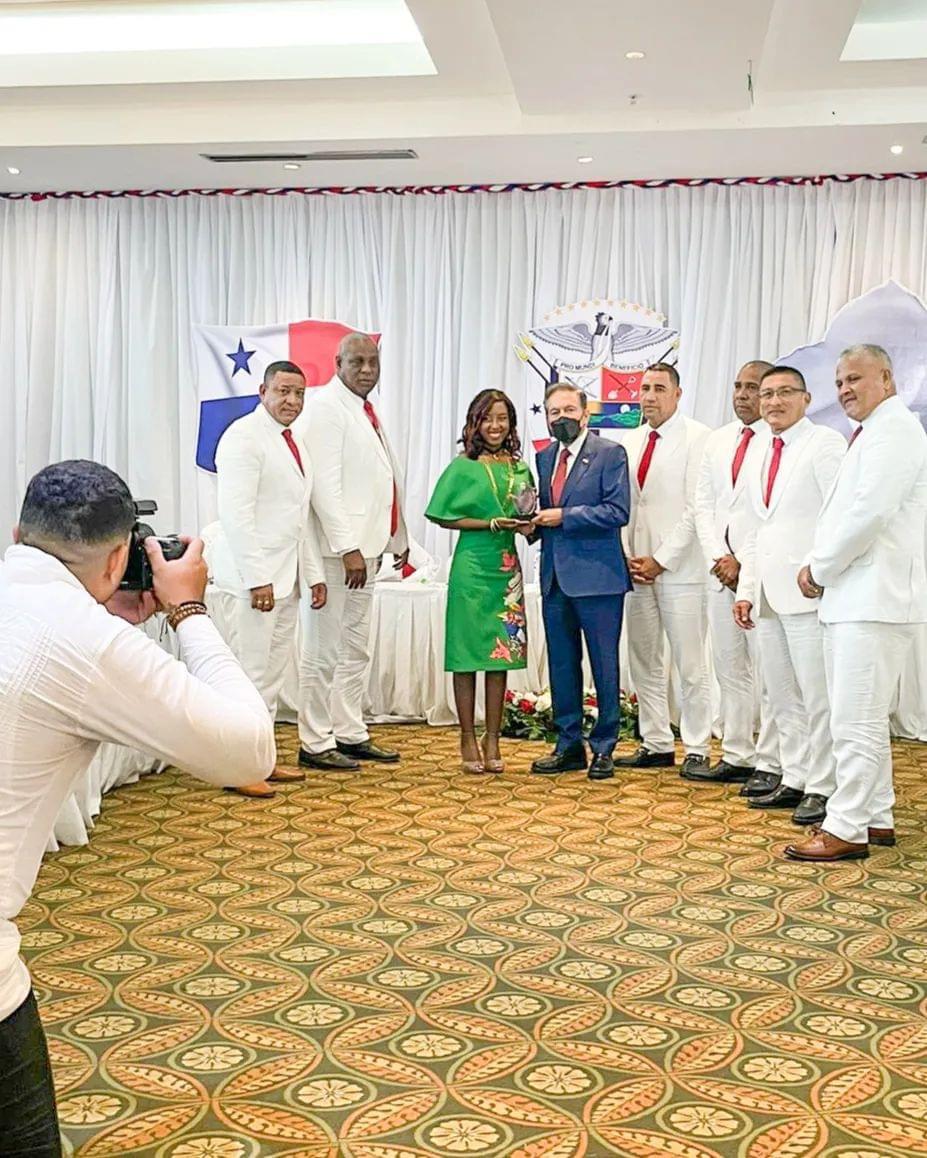
What did you discover that motivated you to investigate about the City of Colón and write a book?
“Since I was little I used to listen to the stories of the elders about the City of Colon; tales that aroused in me a great curiosity when investigating more of the golden years of this town. Which led me to be my research subject for my degree thesis at the university.
It was months of interviews, searching for information in books and web pages that made me more passionate about the subject by discovering so many interesting facts that I had never heard of.
The excitement and passion that I conveyed in supporting this data moved my professors to such an extent that they suggested turning my research into a book. And that is how my first book ‘The historical attractions of a fortunate city: Colon’ was born.”
What is the book about and tell us about three exceptional things that you discovered in the history Colon City?
“The Historical Attractions of a Fortunate City” deals with the emergence of tourism in Colon since its foundation; all those attractions that made this province the most loved, visited and illustrious. Its theaters, its carnivals, its nightclubs, its architecture, its parks, walks and squares, its retreats, its traditions and all those activities that are part of its identity.
Among the exceptional findings that I was able to discover in my research are:
– That the famous “Panama Hat” that today is part of our identity, were actually hats brought from Ecuador to offer them both to tourists who arrived aboard the ocean liners and to adventurers who passed through these lands, from there the “Panama hats” became popular in the Front Street (Avenue from the front) of Colon City.
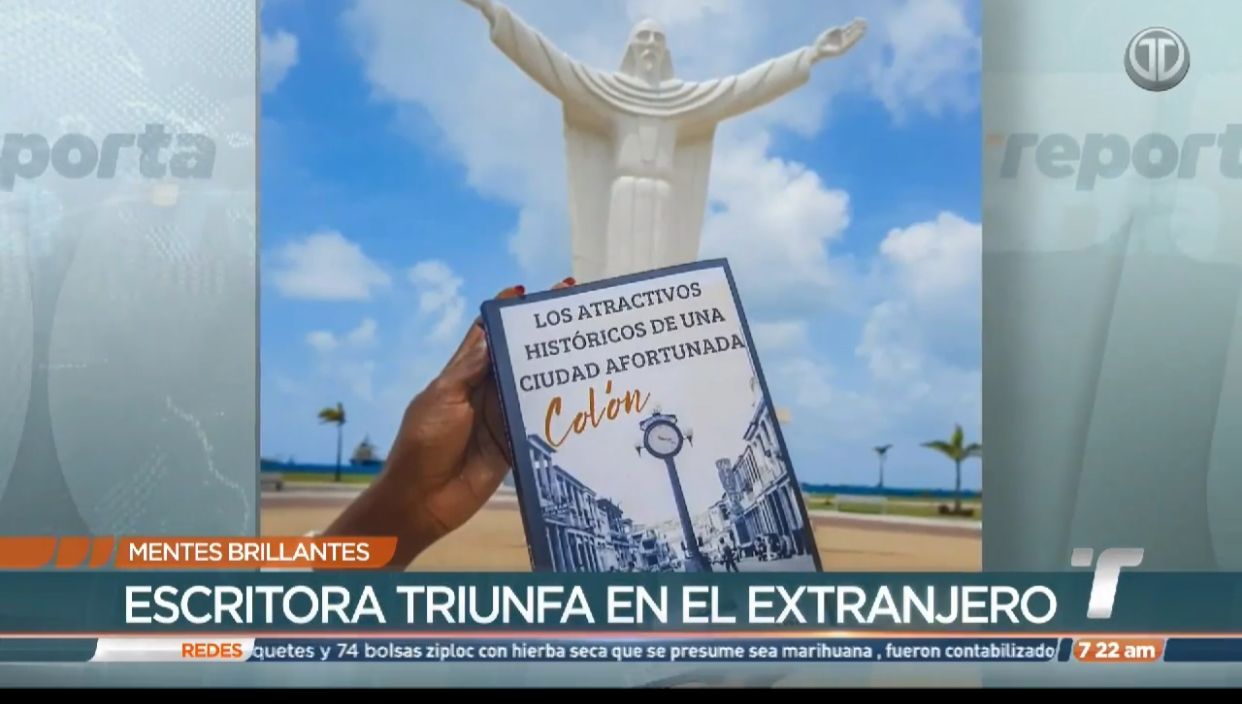
– The visit of great personalities who stayed and enjoyed the City, such as Queen Elizabeth II, the scientist Albert Einstein, the Nicaraguan poet Ruben Dario, the famous Irish novelist Oscar Wilde, among others.
– The fact that the city was the best drawn in the Republic of Panama using the plans of Philadelphia (in the United States) and therefore are: 16 streets and 8 avenues. Its original architecture was similar to that of New Orleans, buildings with large balconies that allowed people to continue walking whole it rain because they could take shelter under those balconies without having to use an umbrella.
What has been the reaction to the book by the Colonenses and the rest of the country?
“The reception of the book was very good from the beginning, which is why it has always made me feel proud to see many people from Colon and Panamanians remember part of these times or relive part of the stories that their parents and grandparents told them. Many times I find messages on my social networks from people who live in other countries, telling me that they have acquired my book with nostalgia since they once visited the city in those golden times, or that they are excited to know about the land of their ancestors.
It has been a very exciting journey in the world of letters to feel the love and support of the people of Colon, both with my first book, and with my recently released book ‘Las aventuras de Coloncito’.”
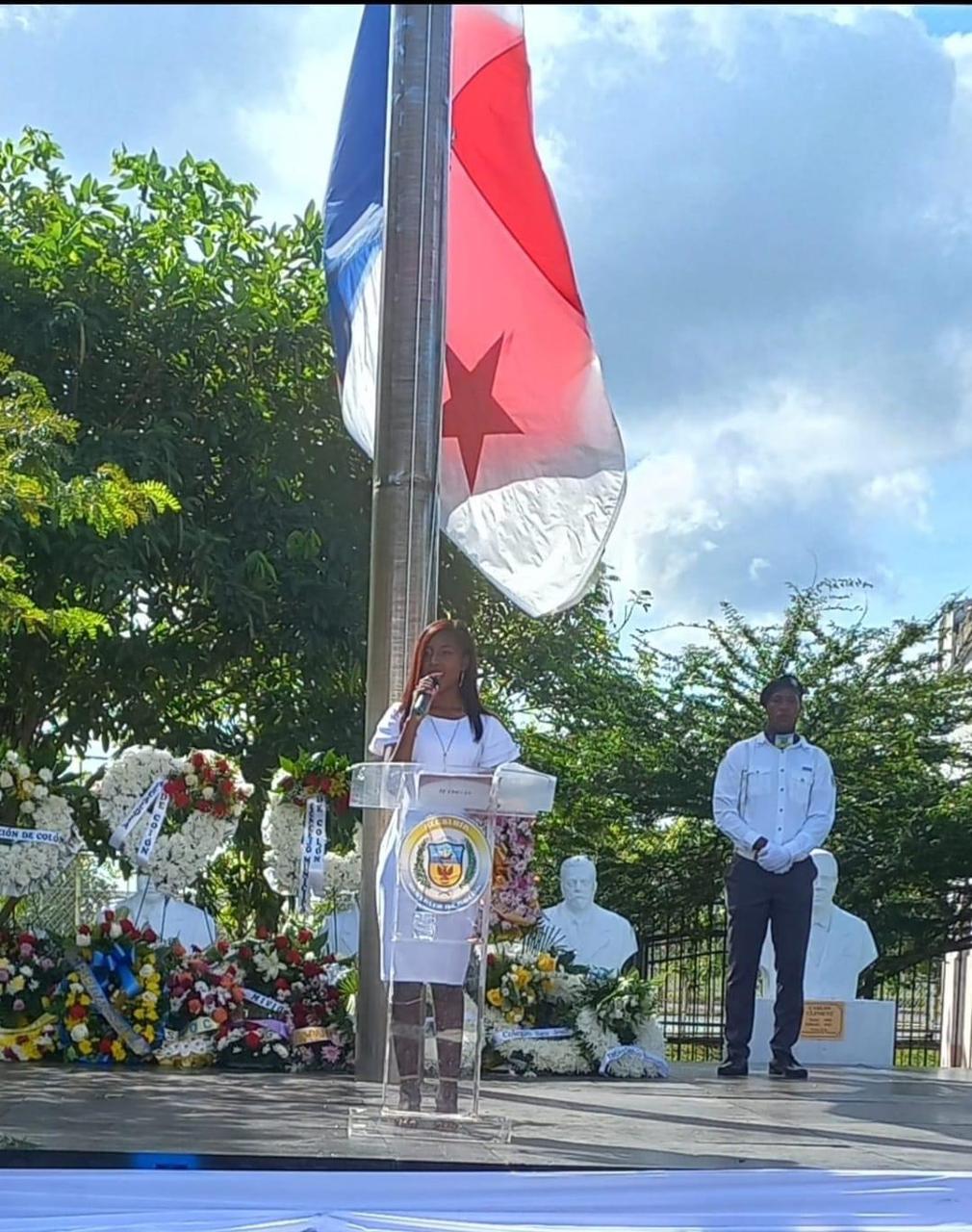
When knowing in depth the history of Colon, and observing its current state, how do you imagine the City would be if it had maintained and strengthened everything it had in its golden years?
“Many times I wondered and imagined when I stood on the streets of the City what it would be like if all those attractions that at the time clothed it with grace and splendor had been maintained. Certainly in every population there must be an evolution that makes its potential develop more and more. But unfortunately the abuse of the authorities in shifts and the inequitable distribution of wealth have left a city mired in a lack of opportunities.
Every day offered by life is an opportunity to regain the will to fight, to imagine, to dream and to act in order to become again the cup of gold even better than before. That is what I intend to awaken with my writings, because I see Colon as the current New Orleans or as Panama City’s Casco Antiguo. And why not?”
What do you feel is needed in the province of Colón in general to take off at a tourist level? It seems that it has lagged behind compared to other areas of Panama.
“Since our province is the second most important in the country and the second one in the country that contributes the most to the gross domestic product, with 60% of the Panama Canal, its free zone, the Colon Free Zone, its ports and logistics and multimodal system which constitutes true sources of economic income and employment of labor that should make our province an area of equality for all.

I can point out that the real problem is not precisely what we need, but lies in the poor distribution of wealth and that today unfortunately permeates certain privileged sectors to the detriment of the vast majority, the lack of political will, cultural and racial segregation, poor public management, suffocating bureaucracy and other factors that affect the resources received by our province derived from these aforementioned activities do not meet the expectations and needs of the population. From a tourist point of view, Colon has everything to lift off, but its social and economic problems do not allow it to develop and manifest this potential to its fullest.
How can you raise the self-esteem of the Colonenses and believe that the change in their province is in themselves?
“I don’t think it’s necessary to raise the self-esteem of Colonenses, since people with low self-esteem feel insecure, dissatisfied and sensitive. Like any population, there are minorities with these characteristics that are mistakenly given all due attention. But as for the true Colonense, they can be described as people with high self-esteem characterized by having great confidence in their abilities and facing tasks with a high expectation of success, which is why Colon is the most prominent province in sports, in the beautiful arts, gastronomy, literature and many other disciplines. Disciplines successfully seized by Colonenses without generally having infrastructures in good condition or opportunities.”
What is being Colonense for you?
“Being from Colon for me is the joy in our way of being, it is sharing, it is the enjoyment of our traditions and customs, it is its ethnic diversity. Being a Colonense is leaving traces wherever we go, it is the pride of the legacy of our beautiful region.
